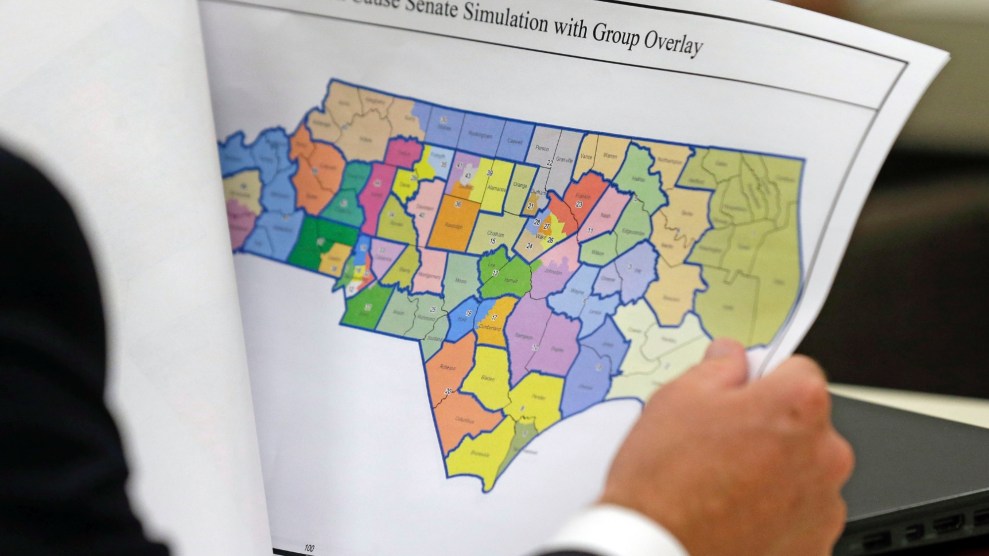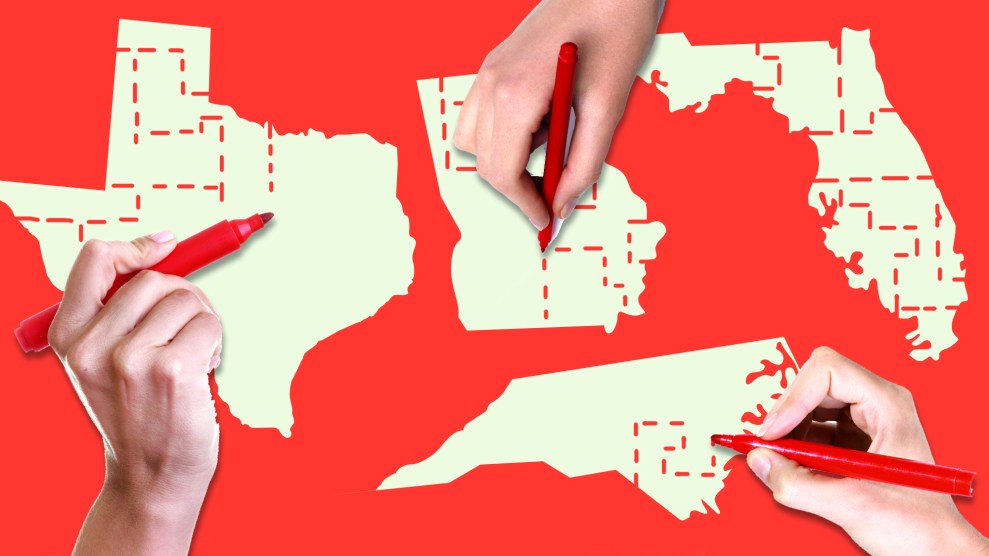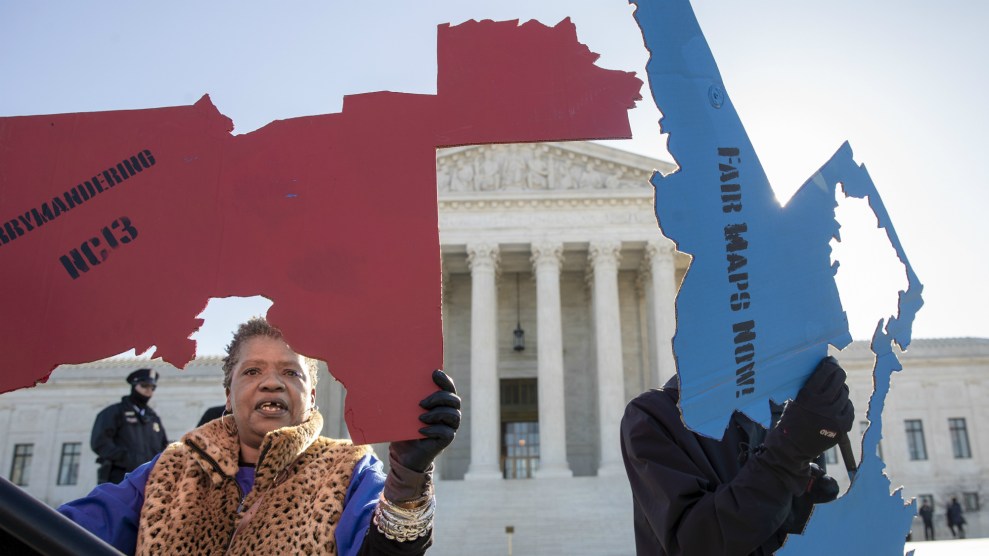
A lawmaker examines a North Carolina district map in 2019.Gerry Broome/AP
The North Carolina state Supreme Court has thrown out a set of district maps that were assailed as “racially gerrymandered” after being ushered through the Republican-controlled legislature, finding them to be an unconstitutional violation of voters’ civil rights.
Even though 49 percent of North Carolina voters cast ballots for Joe Biden in 2020, out of 14 House seats, the maps would have contained only four Democratic-leaning or competitive congressional districts. The nonpartisan Princeton Gerrymandering Project gave all three maps struck down by the court—the congressional map, and state house and senate maps—an F grade for pro-Republican partisan advantage. The maps’ state legislative districts would have put Republicans within spitting distance of veto-proof majorities; in the state senate, Republicans currently hold 28 out of 50 seats; the struck-down map was expected to out two more seats solidly in Republican hands, and leave Democrats with seven new vulnerable districts.
According to the court’s 4-3 ruling, issued along party-lines late on Friday, the maps’ skew violated the state constitution’s free elections, equal protection, free speech, and freedom of assembly clauses. “When, on the basis of partisanship, the General Assembly enacts a districting plan that diminishes or dilutes a voter’s opportunity to aggregate with likeminded voters to elect a governing majority… the General Assembly unconstitutionally infringes upon that voter’s fundamental right to vote,” the Democratic justices wrote. The court’s Republicans dissented, accusing the majority of having tossed “judicial restraint aside.”
After Democrats’ efforts to protect voting rights sputtered and died in the Senate, courts have emerged as a last line of defense against Republican gerrymandering. Ohio’s Supreme Court recently rejected a map that would have given the state’s roughly 55 percent of Republican voters anywhere from 75 percent to 80 percent of seats, in a ruling that compared Republican legislators to dealers who stack decks of cards. Federal judges also blocked a map drawn by the Alabama legislature for violating federal law by packing many of the state’s Black voters into a single seat.
In the next few weeks, courts will rule on Republican-drawn maps in Wisconsin, Louisiana, and Pennsylvania. North Carolina’s legislature has until February 18 to submit new maps and statistical analysis, and prove to the court that voters of all parties will be ensured equal opportunities for representation.
















